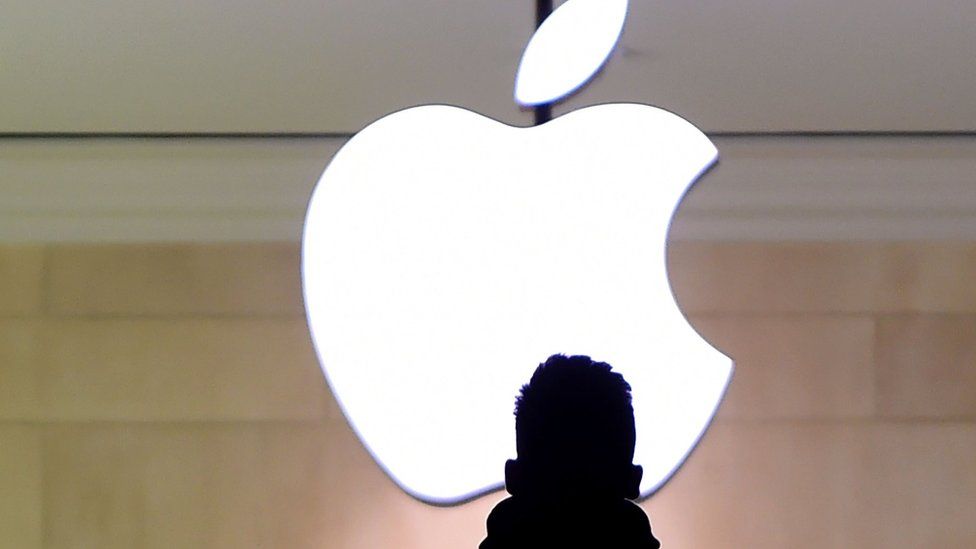Apple: 'US Founders would be appalled'
- Published

Apple has called the US government's request to help it unlock an iPhone a "stretch" of the law and said America's founding fathers would be "appalled".
The US Department of Justice (DOJ) has ordered Apple to help unlock an iPhone used by San Bernardino gunman Rizwan Farook.
But Apple has continued to fight the order, saying it would set a "dangerous precedent".
The case will be heard in a federal court on 22 March.
Farook and his wife killed 14 people in the Californian city last December before police fatally shot them.
EXPLAINED: What does the FBI want?
The FBI wants to access data on Farook's iPhone but the device is encrypted and can only be unlocked by entering the correct Pin code.
Guessing the code incorrectly too many times could permanently wipe the device, so the FBI has asked Apple to develop a new version of its operating system that circumvents some of its security features.
Apple has repeatedly stated that creating a compromised version of iOS would have security implications for millions of iPhone users and would set a precedent.
The FBI's court order refers to a 1789 law called the All Writs Act, which can give courts the power to force companies to cooperate in a criminal investigation.
But in its latest response, Apple said the DOJ was using the law to "resolve a policy and political issue".
"According to the government, short of kidnapping or breaking an express law, the courts can order private parties to do virtually anything the Justice Department or FBI can dream up.
"The Founders would be appalled."
But the FBI has said encryption could make smartphones "warrant-proof".
On 1 March, FBI Director James Comey said: "From the founding of this country it was contemplated that law enforcement could go into your house with appropriate predication and oversight.
"To me the logic of that means they wouldn't have imagined any box or storage area that couldn't be entered.
"It's so seductive to talk about privacy as an ultimate value in a society where we aspire to be safe, and have our families safe and our children safe — that can't be true, we have to find a way to accommodate both."
- Published18 February 2016
- Published24 February 2016